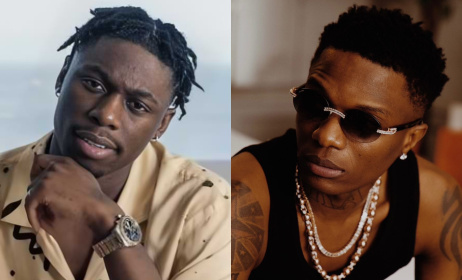Fela was not a prophet
Fela once sang of a friend, a low-level civil servant, who, because he was tired of sweating at night, decided to buy a fan.
 "To listen to Fela is to confront, again and again, the continual cycles of affirmation of Africa’s postcolonial condition."
"To listen to Fela is to confront, again and again, the continual cycles of affirmation of Africa’s postcolonial condition."
It’s tough deciding what to call Fela’s friend—Sisyphus or Tantalus. In Greek mythology, both were condemned to Hades, the former to forever roll a boulder up a hill, the latter to never taste the water standing at his waist or the fruits hanging low from a tree over his head, just out of reach.
Perhaps Fela’s friend was both tragic figures in one. The fan, we learn, is 75 naira, which if it can’t buy a Nigerian decent bread now, was low-hanging fruit, but out of reach for a low-level civil servant in the late 1980s. “Every time he nearly buy the fan/Government go add ten naira” till it became 200 naira. Still, Sisypho-Tantalus couldn’t be deterred: “die die no dey for hin dictionary.” Up the hill he continued to roll his boulder, till, following government interventions, the fan became 750 naira. First tragedy, then farce. “Na laugh laugh catch monkey.”
As it was in the 1980s so has it been recently. How Nigeria came to be mired in its present circumstances is sufficiently ploughed ground, washed in all partisan colours of the country's political spectrum. The common denominator, as always, has been monumental malfeasance facilitated by government. All that seemed within grasp suddenly lurched further out of reach. The boulder rolled back to the bottom of the hill.
To listen to Fela, African China, and Oritse Femi, to read realist African fiction from Ayi Kwei Armah down to Chimamanda Ngozi Adichie, is to confront, again and again, the continual cycles of affirmation of Africa’s postcolonial condition. Nothing has changed, certainly nothing that isn’t cosmetic. These cyclical affirmations of disillusionment have no doubt informed the vastly exaggerated prophetic powers ascribed to Fela, none more than the prophetic theme of 2017’s Felabration.
He was not a prophet. Following his mother’s death, Fela began to dabble in mysticism. Even then, this was more for an otherworldly connection to his mother, the dynamo in the machinery of his creativity, than anything forward-looking. Fela was an astute chronicler, an incisive deconstructor of the Nigerian condition. This public intellectualism was the substance of his being a staple of the university lecture circuit in Nigeria. In song after song after song, Fela was all diagnosis; what seems like prognosis only seems so because it has so far been impossible to escape the centripetal force of the Nigerian tragedy.
Policemen and soldiers still routinely brutalize civilians. In 2009, trouble slept and yanga ushered it into the dastardly phenomenon the world now knows as Boko Haram. Substantial sums of money still waltz out of the public treasury into private pockets. The Nigerian elite still colludes with corporatist overlords from the West to wring Nigeria dry. Nigerian political leaders are still shameless perambulators. Religious leaders still lead lives on the fast lane. The masses still persevere with can only be described as a morbid dynamism. Obasanjo, Fela’s mortal enemy, is still a kingmaker—or at least a kingwrecker.
That said, Fela did tell Punch’s (now known as The Punch) Usman Abudah in 1982 that he was not going to die, despite all the evil visited upon him. “I am going to rule Nigeria but I don’t know when,” he said.
Fela had arguably led Nigeria once. Despite his withdrawal from FESTAC ’77, Black Africa came to pay homage at Kalakuta, where he had set up some sort of counter-festival. But in the decade leading up to his death, Fela’s star had dimmed considerably. Femi Kuti did win a Kora Award in 1999 but the son’s internationality far exceeded his national reputation. Afrobeat once was pop, but has become niche.
A series of events would return Afrobeat to the big time. Fela! debuted off Broadway in 2008 and by 2009 had made it to Broadway. By dint of its cross-cultural reception, Fela! was Hamilton before Hamilton was Hamilton. Is it curious that three of Femi’s four Grammy nominations came in the wake of this renaissance?
In 2014, Wizkid released first Jaiye Jaiye, and later Ojuelegba. Jaiye Jaiye, featuring Femi Kuti, still largely conformed to the shrill sonic program of Fela’s Afrobeat, but Ojuelegba problematized the sound by foregrounding its deep resonant Africanness and relegating its confrontational shrillness from its pride of place. Music being first sound, Wizkid, of course, was not going to heft the heavy mantle of politics that was central to Fela’s Afrobeat. A new wave of Afrobeat (not to be mistaken for whatever Afrobeats is supposed to mean) had been inaugurated. “I want to play music that is meaningful, that stands the test of time,” Fela once said. Yes, but not on your terms old fella.
The 2017 Felabration event takes place from 9 - 15 October



























Commentaires
s'identifier or register to post comments